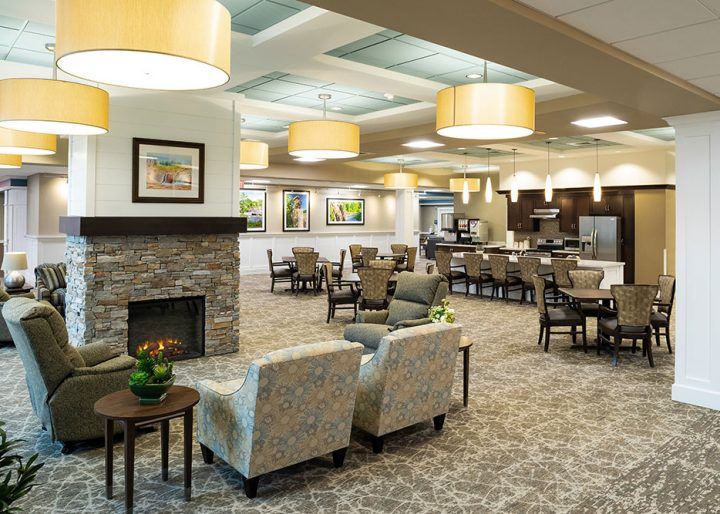Just How Assisted Living Facilities Enhance Lifestyle for Those With Mental deterioration
The assimilation of appealing programs and family members involvement even more improves the residents' experience. The complexities of dementia care continue to evolve, prompting a better assessment of exactly how these centers adjust and introduce to meet the obstacles dealt with by citizens and their family members.
Personalized Care Plans
(Dementia Care Charlotte)Oftentimes, people with mental deterioration require tailored support that resolves their unique needs and preferences. Individualized care plans are crucial in assisted living setups, as they ensure that each resident receives suitable interest and services. These strategies are established collaboratively, including medical care professionals, caretakers, and relative to create a thorough introduction of the person's clinical history, cognitive capacities, and personal interests.
A well-structured individualized treatment plan normally consists of certain objectives related to health management, everyday tasks, and social involvement. It represents the individual's cognitive decline while advertising freedom and self-respect. Normal analyses and updates to the treatment strategy are important, as they enable modifications based upon the local's progressing condition and preferences.
Key components of these plans commonly entail drug management, behavior support strategies, and dietary guidelines customized to the person's needs (Memory Care). By concentrating on personalized treatment, assisted living facilities can foster an encouraging setting that enhances the quality of life for people with mental deterioration, ultimately contributing to their overall wellness and happiness. This customized strategy appreciates the uniqueness of each homeowner, guaranteeing they receive the caring treatment they require

Engaging Tasks and Programs
Engaging residents in purposeful tasks and programs is essential for enhancing the lifestyle for people with dementia. These tasks not just supply satisfaction but additionally promote cognitive function and advertise social interaction, which can alleviate feelings of seclusion typically experienced by locals.

Additionally, personalized programs are important in making sure that each homeowner's special preferences and abilities are recognized. This tailored technique urges involvement, boosts self-worth, and offers a sense of accomplishment.
Moreover, normal evaluations of residents' interests can help team change and adjust activities to better suit progressing needs. By focusing on engaging tasks and programs, assisted living centers can dramatically boost the general experience and psychological health and wellness of people dealing with dementia.
Safe and Helpful Setting
Producing a secure and encouraging environment is vital for people with mental deterioration, as it directly affects their well-being and lifestyle. Assisted living facilities are created with certain functions that advertise safety and security while fostering a complacency and convenience. These settings prioritize accessibility, with formats that minimize complication and urge independence, enabling homeowners to navigate their environments extra conveniently.
Precaution, such as secure entryways and exits, prevent roaming and unauthorized accessibility, which are vital considerations for individuals with dementia (Assisted Living). Team member are trained to acknowledge the distinct needs of homeowners, providing tailored assistance and supervision to guarantee their safety. The consolidation of soothing colors and familiar things can aid reduce anxiousness and disorientation, developing a much more calming environment.
Along with physical safety, psychological support is extremely important. Facilities usually use team that are not only experienced in caregiving but likewise educated in empathy and interaction, promoting count on and relationship with citizens. This alternative approach adds to a nurturing environment where individuals feel valued and understood, eventually boosting their general quality of life.
Social Interaction and Area
A supportive environment not just prioritizes safety and security yet also promotes chances for social communication and community interaction, which are crucial for people with dementia. In nursing home, structured tasks and communal rooms motivate homeowners to get in touch with one an additional, minimizing feelings of seclusion typically experienced by those with cognitive problems.
Social interaction plays a substantial duty in boosting psychological well-being and cognitive function (Memory Care). Engaging with peers in group activities such as video games, arts and crafts, or exercise not just stimulates cognitive abilities however also supports a sense of belonging. Facilities usually arrange occasions that promote socializing, permitting residents to construct partnerships and share experiences, which can be specifically valuable for find out those with mental deterioration
Moreover, a dynamic community environment can improve the overall lifestyle for locals. Personnel are educated to help with communications and assistance residents in developing meaningful links. By producing a society of engagement, helped living facilities assist people with mental deterioration preserve social abilities and enhance their state of mind, eventually contributing to a more fulfilling life experience. This community-oriented strategy is essential in managing the difficulties associated with dementia, advertising a feeling of purpose and connection for homeowners.
Family Involvement and Support
Family participation is crucial in sustaining individuals with dementia in assisted living atmospheres. Actively involving relative not only gives psychological comfort to locals yet likewise cultivates a feeling of belonging and connection in their lives. When families join treatment planning and daily tasks, they add beneficial insights about the individual's choices, background, and needs, which can improve personalized treatment.
Moreover, regular family gos to can substantially boost the psychological well-being of citizens, lowering feelings of seclusion and stress and anxiety. Relative can additionally assist in maintaining cognitive function by engaging their liked ones in acquainted discussions and tasks. This interaction enhances individual identity and assists citizens feel valued and recognized.

Final Thought
To conclude, helped living centers considerably boost the high quality of life for individuals with mental deterioration through customized treatment plans, involving tasks, and a risk-free atmosphere. These elements foster cognitive excitement, emotional wellness, and a sense of self-reliance. Furthermore, normal social communications and solid family members involvement add to significant connections and psychological support. Jointly, these aspects create an alternative strategy to care that addresses the distinct requirements of people with mental deterioration, advertising general well-being and self-respect.